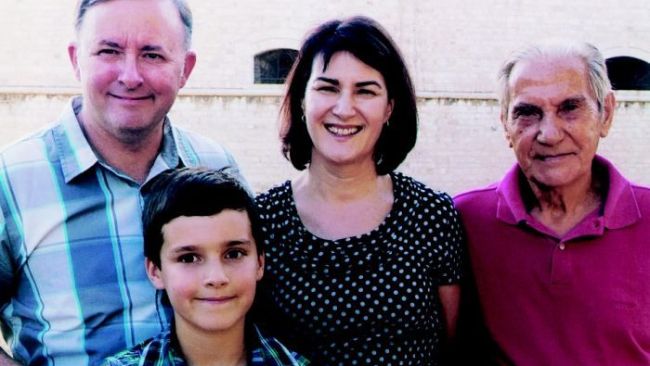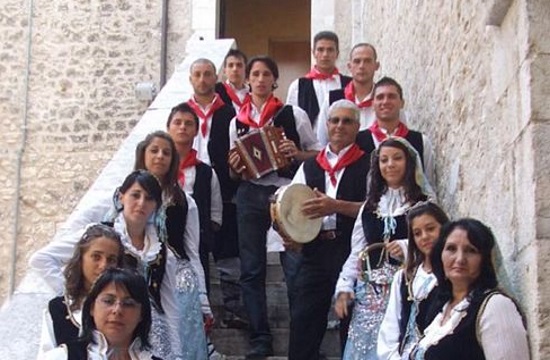Although all Australians know Anthony Albanese for his Italian and Irish roots, not many know that his ancestral homeland in southern Italy has an Ancient Greek origin.
Although the 59-year-old Leader of the Opposition and leader of the Australian Labor Party (ALP) was born in the Sydney suburb of Camperdown, he is the son of Carlo Albanese from Barletta in Italy and Maryanne Ellery, an Australian of Irish descent.
Growing up, Albanese was told that his father had died in a car accident; he did not meet his father, who was in fact still alive, until 2009, tracking him down initially with the assistance of John Faulkner, Carnival Australia CEO Ann Sherry (the parent company of P&O, which acquired the Sitmar Line in 1988) and maritime historian Rob Henderson, and then later the Australian Embassy in Italy and ambassador Amanda Vanstone.

Barletta is a city, comune of Apulia, in southeastern Italy and has a population of around 94,700 citizens.
Although Barletta, known by Greeks and Romans respectively as Bardulos or Barulum, traces its origin back one hundred years before the arrival of either in the region, as demonstrated by the finding of an Apulian settlement (4th century BC) and the derivation of its name 'Baal-El' from Phoenician, the wider Apulia region was quickly absorbed into the Ancient Greek World.
Phoenicians first established a trading post for their trade with the local tribes, and the Etruscans farther north.
Here initially there was among other trade goods, the import of the until then unknown wine, and later after the area had proved a fertile location for its cultivation and export.
So successful was this introduction that the area became known to the Phoenicians as the 'Land of Wine', a name that the Greeks eventually translated as Oenotria.
The wider Apulia region is one of the richest archaeological regions in Italy and was first colonised by Mycenaean Greeks.
However, the Apulia region is also home to a large Arbëreshë community - Italo-Albanians. It is believed they number about 100,000 individuals, and includes Anthony Albanese, with the clue in the name.

Ancestry explains that the name Albanese comes from albanese "(an) Albanian", which is applied to someone from Albania or from one of the Albanian settlements in Abruzzo, Apulia, Campania, and Sicily.
The Arbëreshë are the descendants of Albanian refugees who fled the Balkans in the Middle Ages following the Ottoman invasion of Europe.
For their part, the Greeks referred to the Apulia region as Iapygía (whence 'Apulia') owing to the presence of the three main Iapygian tribes that inhabited Apulia during the first millennium B.C. – the Daunians in the North, the Peucetians in the Centre, and the Messapians in the South.
Greek colonies were established in places as widely separated as the eastern coast of the Black Sea and Massalia (Marseille). They included settlements in Sicily and the costal areas of the southern part of the Italian peninsula.
The Romans called the area of Sicily and the foot of the boot of Italy Magna Graecia (Latin, "Greater Greece"), since it was so densely inhabited by Greeks. The ancient geographers differed on whether the term included Sicily or merely Apulia and Calabria — Strabo being the most prominent advocate of the wider definitions.
The Griko people are a population group in Italy of ultimately Greek origin which still exists today in the Italian regions of Calabria and Apulia.
The Griko people traditionally spoke the Griko language, a form of the Greek language combining ancient Doric and Byzantine Greek elements.

Some believe that the origins of the Griko language may ultimately be traced to the colonies of Magna Graecia. Greeks were the dominant population element of some regions in the south of Italy, especially Calabria, the Salento, parts of Lucania and Sicily until the 12th century.
Over the past centuries the Griko have been heavily influenced by the Catholic Church and Latin culture and as a result many Griko have become largely assimilated into mainstream Italian culture, though once numerous, the Griko are now limited, most of them having become absorbed into the surrounding Italian element.
The Griko language is severely endangered due to language shift towards Italian and large-scale internal migration to the cities in recent decades. The Griko community is currently estimated at 60,000 members
READ MORE: Greek President visits Greek-speaking villages of Southern Italy.


